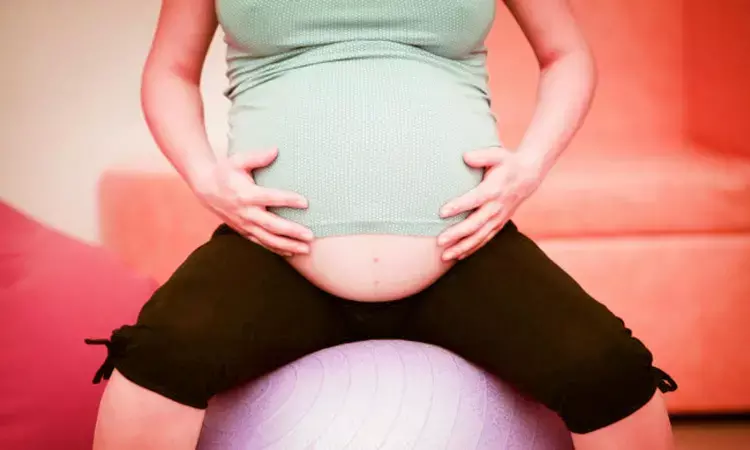- Home
- Medical news & Guidelines
- Anesthesiology
- Cardiology and CTVS
- Critical Care
- Dentistry
- Dermatology
- Diabetes and Endocrinology
- ENT
- Gastroenterology
- Medicine
- Nephrology
- Neurology
- Obstretics-Gynaecology
- Oncology
- Ophthalmology
- Orthopaedics
- Pediatrics-Neonatology
- Psychiatry
- Pulmonology
- Radiology
- Surgery
- Urology
- Laboratory Medicine
- Diet
- Nursing
- Paramedical
- Physiotherapy
- Health news
- Fact Check
- Bone Health Fact Check
- Brain Health Fact Check
- Cancer Related Fact Check
- Child Care Fact Check
- Dental and oral health fact check
- Diabetes and metabolic health fact check
- Diet and Nutrition Fact Check
- Eye and ENT Care Fact Check
- Fitness fact check
- Gut health fact check
- Heart health fact check
- Kidney health fact check
- Medical education fact check
- Men's health fact check
- Respiratory fact check
- Skin and hair care fact check
- Vaccine and Immunization fact check
- Women's health fact check
- AYUSH
- State News
- Andaman and Nicobar Islands
- Andhra Pradesh
- Arunachal Pradesh
- Assam
- Bihar
- Chandigarh
- Chattisgarh
- Dadra and Nagar Haveli
- Daman and Diu
- Delhi
- Goa
- Gujarat
- Haryana
- Himachal Pradesh
- Jammu & Kashmir
- Jharkhand
- Karnataka
- Kerala
- Ladakh
- Lakshadweep
- Madhya Pradesh
- Maharashtra
- Manipur
- Meghalaya
- Mizoram
- Nagaland
- Odisha
- Puducherry
- Punjab
- Rajasthan
- Sikkim
- Tamil Nadu
- Telangana
- Tripura
- Uttar Pradesh
- Uttrakhand
- West Bengal
- Medical Education
- Industry
Exercise during pregnancy may reduce obesity risk among offsprings

Researchers at Washington State University have found that exercise during pregnancy was linked to obesity prevention in offsprings.
When physically fit women exercise during pregnancy they could be setting their children up for better fitness too.
That's according to a study published today in Science Advances led by Min Du, professor of animal sciences at Washington State University, and his PhD student Jun Seok Son.
They found exercise during pregnancy stimulates the production of brown adipose tissue, commonly known as brown fat, in a developing fetus. Brown fat's primary role in the body is to burn off heat.
It is often called good fat. White adipose tissue or white fat, on the other hand, is responsible for obesity and harder to burn off. It is commonly known as bad fat.
Du and Son's results show the offspring of physically fit mice that exercised daily during pregnancy not only had a greater proportion of brown fat relative to body weight but also burned white fat off quicker than the offspring of a control group of pregnant mice that did not exercise.
This helped prevent obesity and also improved metabolic health.
Their study is unique because up to now, the impacts of exercise during pregnancy on fetal development have only been examined in obese mothers.
"Previous research has shown that exercise among overweight women during pregnancy protects against metabolic dysfunction and obesity in their offspring," Du said.
"This new study shows these benefits may also extend to the offspring of women who are healthy and in shape."
As exercise during pregnancy is becoming less common and obesity rates in children are increasing among mothers with various body mass indices, the researchers hope their findings will encourage healthy and fit women to continue living an active lifestyle during pregnancy.
"These findings suggest that physical activity during pregnancy for fit women is critical for a newborn's metabolic health," Son said. "We think this research could ultimately help address obesity in the United States and other countries."
In the study, healthy maternal mice were assigned either to a sedentary lifestyle or to exercise daily. Their offspring were then subjected to a high energy/caloric diet.
Notably, female and male offspring from the experimental group whose mothers had exercised consumed more feed than offspring from the control group. Nonetheless, the experimental group mice showed less weight gain.
Additionally, there was an improvement in glucose tolerance in the female and male offspring from the experimental group. Glucose intolerance is a precursor to developing diabetes and other obesity-related diseases later in life.
Exercise during pregnancy also stimulated the production of apelin, an exercise-induced hormone, in both mothers and their fetuses. Apelin stimulates brown fat development and improves metabolic health.
Du and Son also found administering apelin to the pregnant mice in the control group mimicked some of the beneficial effects of exercise on their offspring.
"This suggests that the apelinergic system could be a possible target for developing drugs that help prevent obesity," Du said.
for further references log on to:
Dr Kamal Kant Kohli-MBBS, DTCD- a chest specialist with more than 30 years of practice and a flair for writing clinical articles, Dr Kamal Kant Kohli joined Medical Dialogues as a Chief Editor of Medical News. Besides writing articles, as an editor, he proofreads and verifies all the medical content published on Medical Dialogues including those coming from journals, studies,medical conferences,guidelines etc. Email: drkohli@medicaldialogues.in. Contact no. 011-43720751


